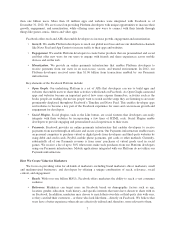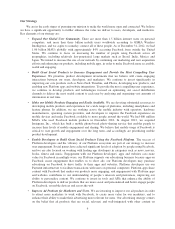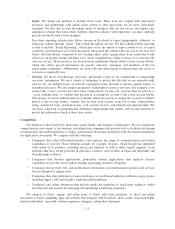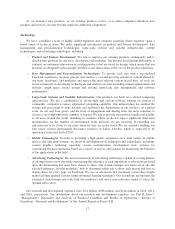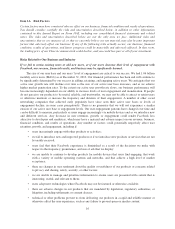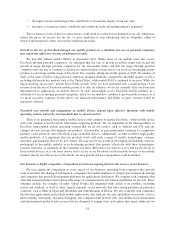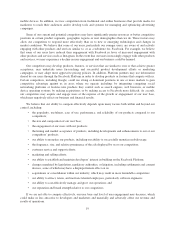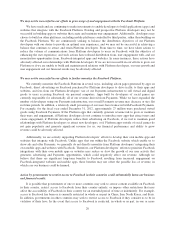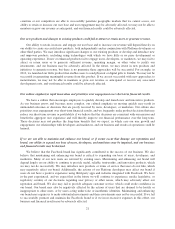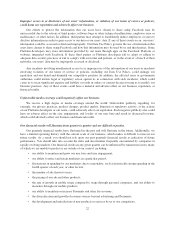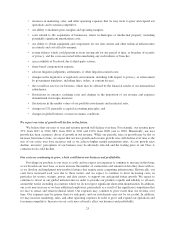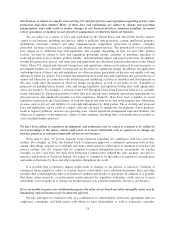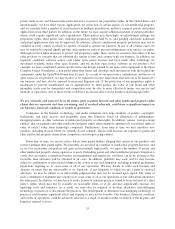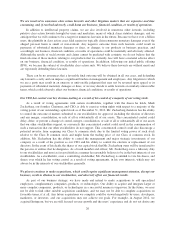Facebook 2012 Annual Report Download - page 21
Download and view the complete annual report
Please find page 21 of the 2012 Facebook annual report below. You can navigate through the pages in the report by either clicking on the pages listed below, or by using the keyword search tool below to find specific information within the annual report.• we adopt policies or procedures related to areas such as sharing or user data that are perceived
negatively by our users or the general public;
• we fail to provide adequate customer service to users, developers, or marketers;
• we, our Platform developers, or other companies in our industry are the subject of adverse media
reports or other negative publicity; or
• our current or future products, such as the Facebook Platform, reduce user activity on Facebook by
making it easier for our users to interact and share on third-party websites.
If we are unable to maintain and increase our user base and user engagement, our revenue and financial
results may be adversely affected.
We generate a substantial majority of our revenue from advertising. The loss of marketers, or reduction in
spending by marketers with Facebook, could seriously harm our business.
The substantial majority of our revenue is currently generated from third parties advertising on Facebook.
For 2012, 2011, and 2010, advertising accounted for 84%, 85% and 95%, respectively, of our revenue. As is
common in the industry, our marketers do not have long-term advertising commitments with us. Many of our
marketers spend only a relatively small portion of their overall advertising budget with us. In addition, marketers
may view some of our products as experimental and unproven. Marketers will not continue to do business with
us, or they will reduce the prices they are willing to pay to advertise with us, if we do not deliver ads in an
effective manner, or if they do not believe that their investment in advertising with us will generate a competitive
return relative to other alternatives. Our advertising revenue could be adversely affected by a number of other
factors, including:
• decreases in user engagement, including time spent on Facebook;
• increased user access to and engagement with Facebook through our mobile products or other new
devices in the future, where our ability to monetize is less proven than it is from use on personal
computers;
• product changes or inventory management decisions we may make that reduce the size, frequency, or
relative prominence of ads displayed on Facebook;
• our inability to increase advertiser demand, which affects pricing;
• our inability to increase the quality of ads shown to users, particularly on mobile devices;
• the accuracy of our analytics and measurement solutions that demonstrate the value of our ads, or our
ability to further improve such tools;
• decisions by marketers to use our free products, such as Facebook Pages, instead of advertising on
Facebook;
• loss of advertising market share to our competitors, including if such competitors offer more integrated
products;
• adverse legal developments relating to advertising, including legislative and regulatory developments
and developments in litigation;
• adverse media reports or other negative publicity involving us, our Platform developers, or other
companies in our industry;
• our inability to create new products that sustain or increase the value of our ads;
• the degree to which users opt out of social ads;
• the degree to which users cease or reduce the number of times they click on our ads;
• changes in the way online advertising is priced;
17


